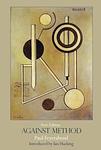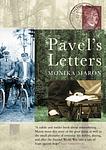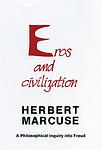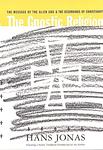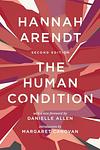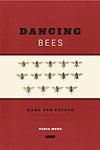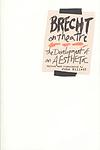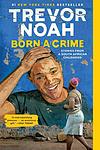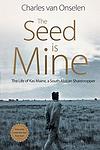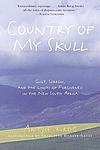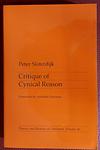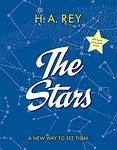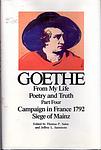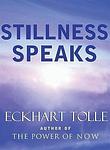The Greatest German, South African "Nonfiction" Books Since 1950
Click to learn how this list is calculated.
This list represents a comprehensive and trusted collection of the greatest books. Developed through a specialized algorithm, it brings together 305 'best of' book lists to form a definitive guide to the world's most acclaimed books. For those interested in how these books are chosen, additional details can be found on the rankings page.
Genres
Countries
Date Range
Reading Statistics
Click the button below to see how many of these books you've read!
Download
If you're interested in downloading this list as a CSV file for use in a spreadsheet application, you can easily do so by clicking the button below. Please note that to ensure a manageable file size and faster download, the CSV will include details for only the first 500 books.
Download-
26. Against Method by Paul Feyerabend
"Against Method" argues that science does not adhere to a strict, universal method and that the idea of a singular scientific method is a myth. The author challenges the notion that science progresses through a consistent, rule-based approach, suggesting instead that scientific breakthroughs often require creativity, non-conformity, and the breaking of rules. The book posits that the advancement of knowledge depends on anarchistic strategies that subvert rigid scientific norms, advocating for a more pluralistic, tolerant, and individualistic approach to scientific research. This perspective encourages a methodological pluralism where multiple methodologies coexist, allowing for a more diverse and dynamic scientific inquiry.
The 4766th Greatest Book of All Time -
27. Pavel's Letters by Monika Maron
"Pavel's Letters" is a poignant narrative that explores the personal journey of a novelist who uncovers her family's past in war-torn Poland. After receiving a collection of letters from her grandfather, Pavel, the protagonist delves into the history of her family, their experiences during World War II, and the hardships they faced under Stalin's regime. The book is a compelling blend of personal memories, historical facts, and the exploration of the human spirit's resilience in the face of adversity.
The 4834th Greatest Book of All Time -
28. The Theory Of Communicative Action by Jürgen Habermas
The book is a seminal work in social theory that explores the concept of communicative action, where individuals interact based on mutual understanding and pursue rational arguments, consensus, and cooperation rather than merely acting for individual success. The author critiques the instrumental and strategic action in modern societies and argues that communicative action is essential for maintaining the rationality and democratic nature of human interactions. The work delves into the structures of how language and social interaction form the basis of society and how distortions in communication can lead to social issues, emphasizing the importance of transparent and undistorted communication in achieving genuine understanding and societal cohesion.
The 4842nd Greatest Book of All Time -
29. A Woman In Berlin by Marta Hillers
The book is a powerful, anonymous diary that provides a harrowing first-person account of the final weeks of World War II in Berlin, from April to June 1945. The female author, a journalist, describes the chaos of a city under siege, the brutality of the occupying forces, and the struggle for survival faced by the women of Berlin. She candidly records the widespread rape by Soviet soldiers and the complex web of emotions, compromises, and small acts of resistance that characterized daily life during this period. The diary stands as a poignant testament to human resilience and a stark examination of the often-unspoken atrocities of war.
The 5276th Greatest Book of All Time -
30. Minima Moralia by Theodor Adorno
"Minima Moralia" is a collection of aphoristic essays that delve into the intricacies of modern life under capitalism and the pervasive influence of the culture industry. Written during the author's exile in the mid-20th century, the work reflects on the erosion of individuality and the subtle tyrannies of conformity and ideological manipulation. The essays blend philosophy, sociology, and cultural critique, offering profound insights into the human condition and the social dynamics of contemporary society. Through its critical examination of everyday phenomena, the book challenges readers to reconsider their perceptions of normality and ethics in a rapidly changing world.
The 5517th Greatest Book of All Time -
31. Oriental Despotism by Karl August Wittfogel
"Oriental Despotism" presents a theory that ancient bureaucratic societies, particularly those in Asia, developed as a result of the need to manage large-scale irrigation systems. The author argues that the control of water resources in arid regions led to the creation of centralized, autocratic power structures, which he terms "hydraulic despotisms." These governments wielded significant control over their subjects, as the management and distribution of water was crucial for agriculture and survival. The book explores how this form of governance influenced the political and social structures of various Eastern civilizations, contrasting them with Western societies that developed under different ecological conditions.
The 5517th Greatest Book of All Time -
32. Eros And Civilization by Herbert Marcuse
"Eros and Civilization" is a seminal work in critical theory that explores the interplay between societal structures and human desires. The book argues that the progress of civilization has necessitated the repression of basic human instincts and desires, as dictated by the performance principle governing capitalist societies, which prioritizes productivity and control over pleasure. Drawing on Freudian psychoanalysis, the author proposes the possibility of a non-repressive society where pleasure and work can coexist harmoniously. This work challenges traditional notions of utility and rationality in modern industrial societies, advocating for a liberation of human desires through aesthetic and libidinal expressions that could lead to a more fulfilling existence.
The 5517th Greatest Book of All Time -
33. The Gnostic Religion by Hans Jonas
"The Gnostic Religion" explores the rich tapestry of Gnosticism, a prominent religious movement in early Christian history that proposed a unique set of beliefs centered around the concept of gnosis, or mystical knowledge. The book delves into the origins, main features, and philosophical underpinnings of Gnosticism, examining its interpretation of the universe as a division between a flawed material world and a transcendent spiritual realm. It also discusses the influence of Gnosticism on various religious and philosophical traditions, providing a comprehensive overview of its enduring legacy and its significance in the broader context of religious history.
The 5517th Greatest Book of All Time -
34. What Is Called Thinking? by Martin Heidegger
The book explores the nature of thought and understanding, delving into the essence of what it means to think. The author challenges the traditional views of thinking as mere cognition or problem-solving, proposing instead that true thinking is a profound engagement with being itself. Through a detailed examination of the works of philosophers, poets, and other thinkers, the text invites readers to reconsider the relationship between thought, language, and the essence of humanity, emphasizing the need for authenticity in the process of thinking and the transformative potential it holds for understanding our existence.
The 5517th Greatest Book of All Time -
35. The Social History Of Art by Arnold Hauser
"The Social History of Art" is a comprehensive analysis that explores the intricate relationship between art and its social contexts throughout different historical periods. This work delves into how social, economic, and cultural conditions have influenced artistic expression from prehistoric times to the modern era. The author examines various art forms including painting, sculpture, and architecture, and discusses the roles of class, ideology, and the artists' social standings in shaping the art of their times. This book provides a critical perspective on the evolution of art, emphasizing the socio-economic forces that drive artistic innovation and aesthetic changes.
The 5517th Greatest Book of All Time -
36. The Human Condition by Hannah Arendt
The book in question is a philosophical examination of the nature of human activities: labor, work, and action, and their fundamental role in the fabric of society. The author delves into the historical development of these activities, distinguishing them from one another and exploring their transformation in the modern age. The text critically reflects on the decline of the public realm and the rise of the private, the impact of automation on human purpose, and the loss of meaningful political action in contemporary life. The work is a profound inquiry into the ways in which human beings interact with the world, each other, and themselves, ultimately seeking to understand the conditions under which individuals live, act, and establish their presence in the world.
The 5517th Greatest Book of All Time -
37. The Dancing Bees by Karl von Frisch
"The Dancing Bees" is a fascinating exploration of the behavior and communication of bees, particularly focusing on the groundbreaking discovery of the bee dance language. The book delves into how bees use dance movements to communicate vital information about the location of food sources to their hive mates. Through meticulous observation and innovative experiments, the author unveils the complexity of bee communication and the remarkable precision with which bees can convey specific information about distance and direction. This work not only highlights the intricate social structure of bee colonies but also reflects on broader themes of animal intelligence and communication.
The 5517th Greatest Book of All Time -
38. Brecht On Theatre by Bertolt Brecht
"Brecht on Theatre" is a seminal work that compiles various essays, notes, and journal entries that delve into the theories and practices of influential German playwright and director Bertolt Brecht. The book explores Brecht's development of Epic Theatre, a style intended to provoke rational self-reflection and a critical view of the action on the stage, rather than emotional manipulation. Brecht's ideas emphasize the importance of the audience's engagement through a variety of innovative dramatic techniques, including the alienation effect, which aims to prevent the audience from losing itself passively and completely in the character's emotions. This collection serves as an essential guide for understanding the evolution of modern theatre and Brecht's enduring influence on dramaturgy and performance.
The 5517th Greatest Book of All Time -
39. Born A Crime by Trevor Noah
"Born A Crime" is a captivating memoir that chronicles the life of Trevor Noah, a South African comedian and television host. Set during the apartheid era, the book explores Noah's experiences as a mixed-race child growing up in a society where interracial relationships were illegal. With humor and insight, Noah recounts his struggles with identity, poverty, and racism, while also highlighting the resilience and strength of his mother who played a pivotal role in his life. This thought-provoking memoir offers a compelling and personal perspective on race, family, and the power of laughter in the face of adversity.
The 5704th Greatest Book of All Time -
40. Essays On Music by Theodor Adorno
This collection is a comprehensive anthology of critical essays on the subject of music, written by one of the 20th century's most influential philosophers and social critics. The work delves into the complexities of musical composition, performance, and reception, offering a profound exploration of the social, political, and cultural dimensions of the musical experience. The author critiques the commodification of music in capitalist societies and the way this impacts artistic authenticity and the listener's experience. Through a series of essays, the author examines various genres and eras, from classical to jazz to popular music, applying a rigorous theoretical framework that draws from Marxist thought, sociology, and psychoanalysis to dissect the role of music in modern life.
The 5891st Greatest Book of All Time -
41. The Seed Is Mine by Charles Van Onselen
"The Seed Is Mine" is a historical non-fiction book that explores the life of a black South African named Klaas, who lived through the tumultuous years of apartheid. Through extensive research and interviews, the author delves into Klaas' personal experiences, struggles, and aspirations, shedding light on the complex dynamics of race, class, and power during this period. The book offers a poignant and intimate portrayal of one man's fight for dignity and justice amidst a system designed to suppress and oppress.
The 5914th Greatest Book of All Time -
42. Chariots Of The Gods: Was God An Astronaut? by Erich Von Däniken
The book in question presents a controversial hypothesis that suggests ancient civilizations were visited by advanced extraterrestrial beings who were mistaken for gods by our ancestors. The author examines archaeological and historical evidence, such as the pyramids of Egypt, ancient mythologies, and religious texts, to argue that these alien visitors had a significant influence on human development and culture. The book challenges traditional views of human history by proposing that technologies and knowledge from these otherworldly visitors could explain some of the inexplicable architectural and technological feats accomplished in ancient times.
The 5947th Greatest Book of All Time -
43. Country Of My Skull by Antjie Krog
"Country Of My Skull" is a powerful and deeply personal account of the author's experiences as a journalist covering the Truth and Reconciliation Commission in post-apartheid South Africa. Through her vivid and introspective narrative, the author explores the complexities of forgiveness, justice, and the collective healing process of a nation grappling with its painful past. This thought-provoking book offers a unique perspective on the complexities of reconciliation and the enduring impact of trauma on individuals and societies.
The 6211th Greatest Book of All Time -
44. Critique Of Cynical Reason by Peter Sloterdijk
The book provides a deep exploration of cynicism as a pervasive and influential mindset in contemporary society, tracing its evolution from the classical cynicism of antiquity to its modern form, which the author describes as "enlightened false consciousness." The work delves into the philosophical, social, and psychological dimensions of cynicism, examining how it serves both as a defense mechanism and a form of social critique. Through a blend of philosophical analysis, cultural commentary, and historical insight, the book challenges readers to understand and confront the cynical attitudes that pervade modern culture and to consider the possibilities for genuine sincerity and commitment in a seemingly disenchanted world.
The 6254th Greatest Book of All Time -
45. The Stars by H.A. Rey
"The Stars" is an informative guide that simplifies the complex subject of astronomy, making it accessible and engaging for readers of all ages. The book uses clear, easy-to-understand language and distinctive illustrations to explain how to identify stars, planets, and constellations in the night sky. It provides practical tips on stargazing, including how to use star maps and recognize star patterns throughout the seasons. This educational resource serves as an excellent introduction to astronomy, encouraging readers to explore and appreciate the celestial wonders of the universe.
The 6304th Greatest Book of All Time -
46. Boyhood: Scenes from provincial life by J M Coetzee
"Boyhood: Scenes from Provincial Life" is a semi-autobiographical novel that explores the author's childhood in South Africa during the apartheid era. The narrative delves into the complexities of family dynamics, racial tension, and the struggle of a young boy trying to understand his place in a divided society. The protagonist grapples with his identity, torn between his Afrikaner heritage and his English schooling, while also navigating the trials of adolescence. The book offers a poignant and often painful reflection on the formative years of a boy growing up in a fraught and turbulent time.
The 6575th Greatest Book of All Time -
47. Stillness Speaks by Eckhart Tolle
The book is a guide to discovering profound inner peace and serenity through the power of mindfulness and stillness. It delves into the transformative potential of living in the present moment and disengaging from the constant chatter of the mind. The author presents a series of meditative insights and wisdom that encourage readers to connect with the depth of the present moment, transcending ego-driven thoughts and emotions. By embracing stillness, the book suggests that individuals can access a deeper sense of self-awareness, leading to a more fulfilling and enlightened existence.
The 6940th Greatest Book of All Time -
48. The Invention Of Nature: Alexander Von Humboldt’s New World by Andrea Wulf
"The Invention of Nature" is a biographical account of Alexander von Humboldt, a 19th-century explorer, scientist, and naturalist who revolutionized the way we understand the natural world. Andrea Wulf chronicles Humboldt's travels across South America, his encounters with indigenous peoples, and his groundbreaking scientific discoveries that challenged prevailing notions of the natural world. Humboldt's ideas about interconnectedness and the unity of nature were ahead of their time and continue to influence environmentalism and conservation today. Wulf's book is a masterful exploration of one of history's most fascinating and influential figures.
The 7072nd Greatest Book of All Time -
49. Thomas Mann Heinrich Mann by Helmut Koopmann
The book provides a comprehensive study of the lives and works of two prominent German literary figures, who were also brothers. It delves into their complex relationship, contrasting ideologies, and individual contributions to literature and culture. The author examines their personal and professional journeys, exploring how their differing views on art, politics, and society reflected the broader intellectual and historical currents of their time. Through a detailed analysis of their novels, essays, and other writings, the book offers insights into the brothers' influence on each other and on the literary world, highlighting their lasting legacy in the context of German and world literature.
The 7131st Greatest Book of All Time -
50. The Meaning of Hitler by Sebastian Haffner
This book provides an insightful analysis of Adolf Hitler's life, his rise to power, and the devastating impact of his rule. It delves into Hitler's ideology, his strategies, and the psychological factors that contributed to his becoming one of history's most infamous dictators. The book also critically examines the factors that allowed Hitler's rise and the world's response, offering a comprehensive understanding of this dark chapter in human history.
The 7937th Greatest Book of All Time
Reading Statistics
Click the button below to see how many of these books you've read!
Download
If you're interested in downloading this list as a CSV file for use in a spreadsheet application, you can easily do so by clicking the button below. Please note that to ensure a manageable file size and faster download, the CSV will include details for only the first 500 books.
Download